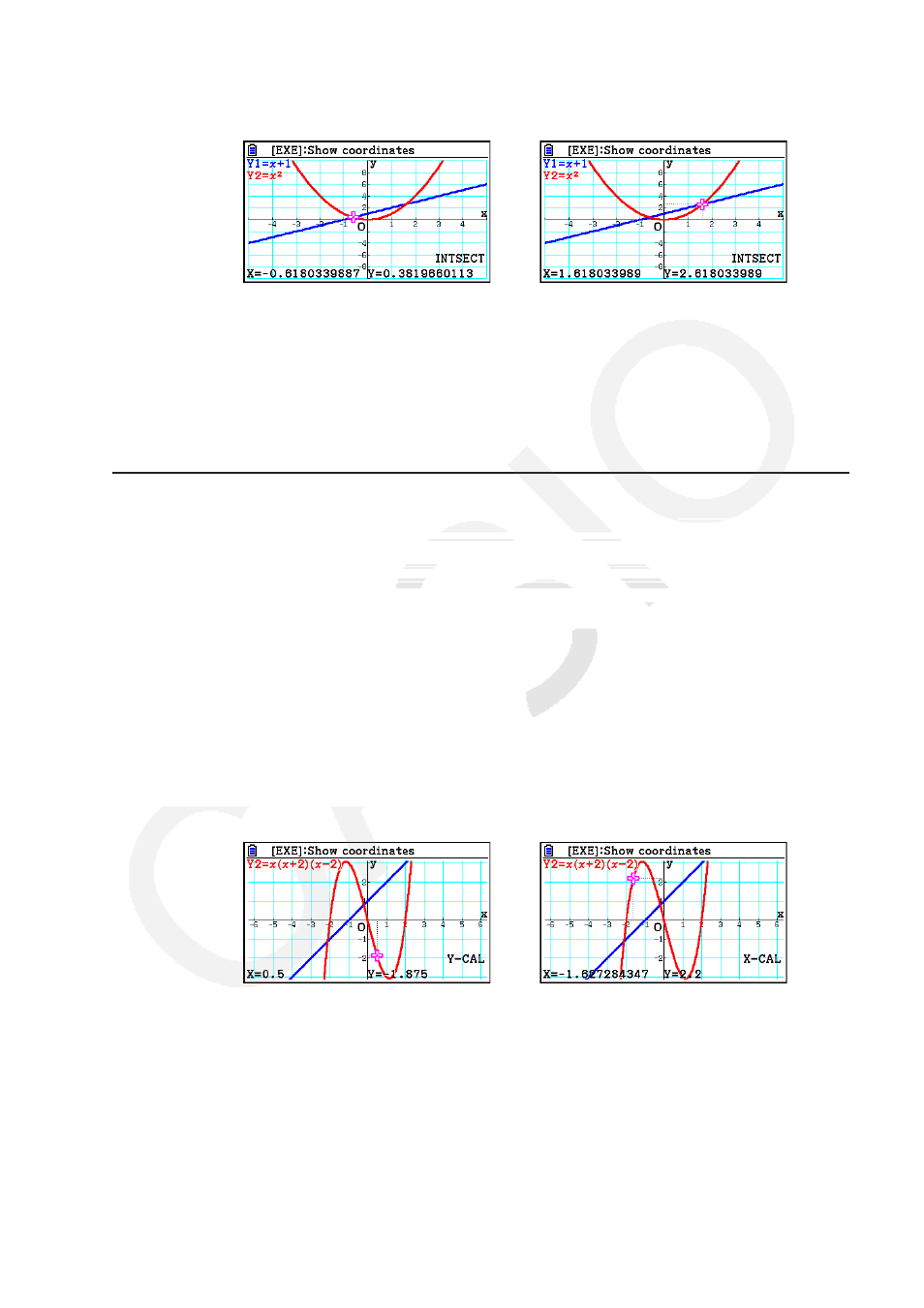Casio FX-CG10 User Manual
Page 188

5-56
Example
Graph the two functions shown below, and determine the point of
intersection between Y1 and Y2.
Y1 =
x
+ 1, Y2 =
x
2
• You can calculate the point of intersection for rectangular coordinate graphs (Y=
f
(
x
) type)
and inequality graphs (Y
>
f
(
x
), Y
<
f
(
x
), Y
≥
f
(
x
) or Y
≤
f
(
x
)) only.
• Either of the following can cause poor accuracy or even make it impossible to obtain
solutions.
-
When a solution is a point of tangency between two graphs
-
When a solution is an inflection point
u To determine the coordinates for given points
1. Draw the graph.
2. Select the function you want to perform.
!5(G-SOLVE) 6(g)1(Y-CAL) ...
y
-coordinate for given
x
6(g)2(X-CAL) ...
x
-coordinate for given
y
3. If there are multiple graphs on the graph screen, one of them will start flashing. Use
f and
c to move the flashing to the graph you want to select and then press w.
4. Input the given
x
-coordinate value or
y
-coordinate value.
Press
w to calculate the corresponding
y
-coordinate value or
x
-coordinate value.
Example
Graph the two functions shown below and then determine the
y
-
coordinate for
x
= 0.5 and the
x
-coordinate for
y
= 2.2 on graph Y2.
Y1 =
x
+ 1, Y2 =
x
(
x
+ 2)(
x
– 2)
• When there are multiple results for the above procedure, press
e to calculate the next
value. Pressing
d returns to the previous value.
• The X-CAL value cannot be obtained for a parametric function graph.
